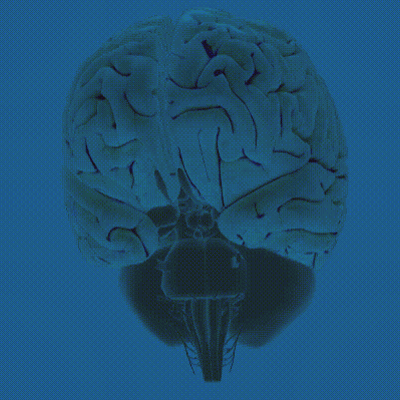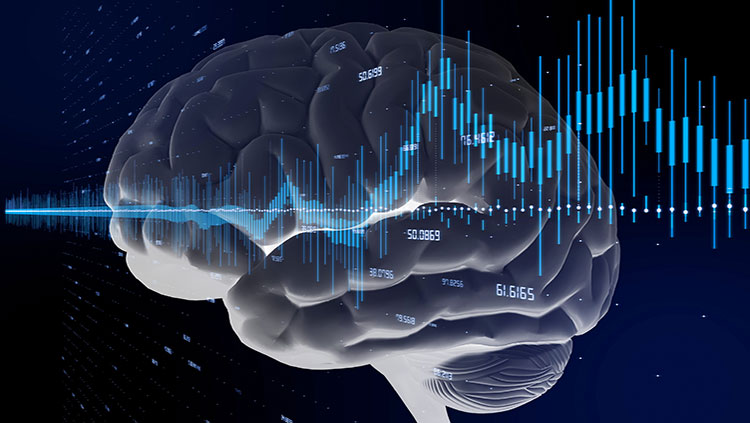What is Normal Cognitive Aging?
- Published4 Oct 2018
- Reviewed4 Oct 2018
- Author Hannah Zuckerman
- Source BrainFacts/SfN

Everyone experiences a “senior moment” as they get older. Episodes of misplacing keys or forgetting an acquaintance’s last name doesn’t necessarily signal a brain disease. We asked Denise Park, director of research at the Center for Vital Longevity and chair in Behavioral and Brain Sciences at the University of Texas at Dallas, what happens to the brain and cognition as we simply get older and what we can do to mitigate the effects of it.
How does the brain change as it ages?
The brain shrinks, or loses volume, with age, primarily in the frontoparietal and hippocampal regions. The occipital lobe, in the back of the brain, shrinks much less with age. It is quite common for older adults to show increased activity in both frontoparietal regions compared to younger adults who might perform the same word judgment task primarily in the left frontoparietal region. This additional activation in the brains of older adults appears to provide the neural resources needed to maintain performance on a cognitive task in the face of brain shrinkage.
Neuroscientists think a healthy older brain may look quite like a 20-year-old’s brain: it is roughly the same size and displays similar activation patterns. One way to think about it is like a 60-year-old who has exercised and maintained their weight might be told by their physician that they have the heart of a 20-year-old, a 60-year-old with robust brain volume and youthful activation patterns will likely have good cognition. But, even if people have slower cognitive changes with age, time is inexorable. The brains of these individuals will show declines due to use over time.
How does cognition change with age?
It’s actually unclear how much cognition declines with age for a given group of people. The context in which people are aging is continuously changing, and it may affect the way the brain ages. Think of the information processing demands in our society relative to 25 years ago. Being zapped with information from all directions could impact a child’s developing brain and sculpt their cognitive function as they age. For example, older adults of the pre-calculator era maintain quite good computational skills but take a long time to become proficient in a video game that requires quick visual scanning and rapid responses. The children from the present era may have a very different cognitive signature from this when they are older. Nevertheless, all will age. The most reliable age-related change is a decrease in speed of processing — how fast you do things, how fast you process information. It’s a subtle effect, people don’t realize they’re getting slower typically until late life. In support of how early the decline begins note the age of the Olympians who win medals in sports that rely primarily on speed. Attention and some types of memory also decline. Thankfully, vocabulary, knowledge, and expertise are preserved with age. Though the mind’s hardware declines — memory and speed of processing — its software — knowledge and experiences — aggregates and increases.
What is normal memory loss that comes with aging?
People often forget specific things like proper names because these names are uniquely linked to only one person. If you imagine your memory as a network, the nodes at the top are categories that get increasingly specific with exemplars that increase in rarity. If you were with someone who saw a fluffy white-powder puff of a dog running by, you would be concerned if they could not call the animal a dog. If asked for more detail, they might call the dog a poodle, which is a fairly common breed. They might really struggle to come up with the correct breed of “bichon frise” because they have encountered only a few exemplars and that link is elusive and fragile. The inability to remember specific exemplars (like the name of a person) is a common and frustrating experience as we age.
Although forgetting a name is common, it should chill you when you start calling everyone “pal” or “dear” and everyday objects too often become “whatchamacallits.” A low level of specificity in your ability to name things is somewhat predictive of cognitive pathology. However, everybody experiences memory lapses as they age. Think of this occurring because the search through the network is being too slow, or you encountered some block, as often you do recall it later.
How can people slow the effects of the aging brain?
The brain has some limited plasticity with age, and unfortunately the important word there is “limited.” In one study we found that people exposed to a learning environment that required sustained mental effort and new learning showed improved memory that was maintained for a year. However, it was a small study, and we are working on replicating it. There’s some evidence that you can increase your working memory capacity with training and increase your brain’s vascular health with exercise. So, I think you can sculpt your cognitive future a little through diet, exercise, and mentally-challenging activities. I do think it’s wise to stay stimulated … but I don’t think you can completely change your trajectory of aging by doing all of these things. A lot of it is determined by your genetics, your early life experiences, your education, and your access to medical care.
This question was answered by Denise Park as told to Hannah Zuckerman for BrainFacts.org.
CONTENT PROVIDED BY
BrainFacts/SfN





.jpg)











